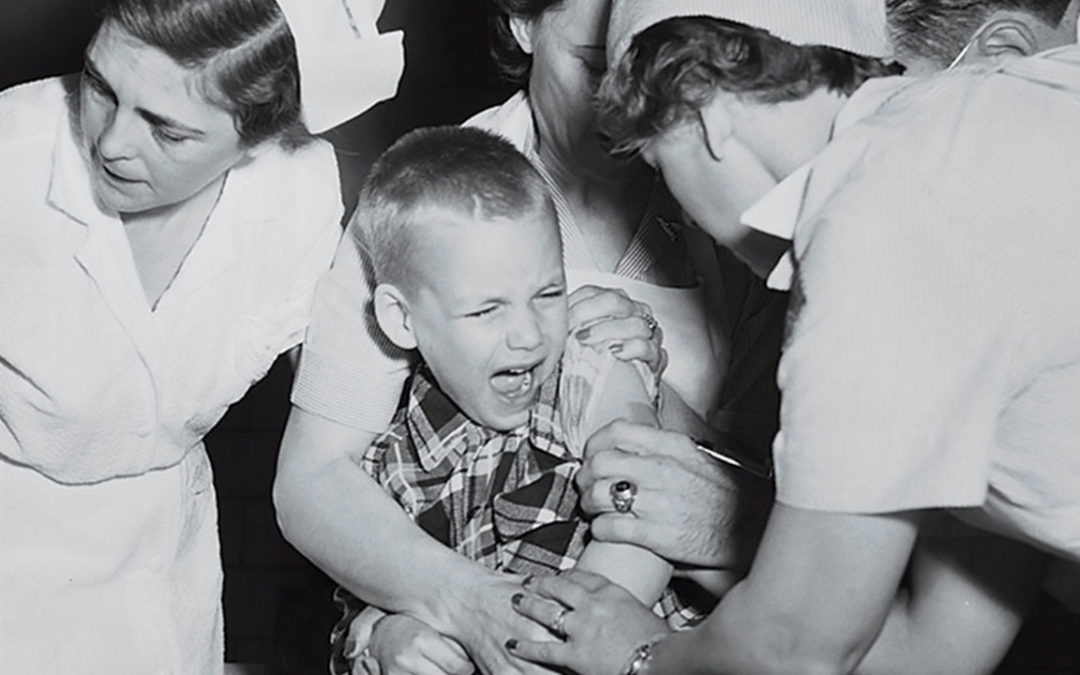I’ve got you beat! Have you ever been vaccinated for rabies?
Years ago, my young family was traveling back from Frederick, Maryland after the 4th of July when I asked my wife to pull over because I saw an injured baby raccoon by the side of the road.
I love all living things and most humans.
The little raccoon was so small it fit into the palm of my hand. I took it home that night, named her Thomas Jefferson — because it was the 4th of July after all — and started to feed her with an eye dropper.
I researched diet and organized my schedule to ensure regular feedings, but it was too late. Three days later, she started to die. Despite my efforts, somewhere around 3 o’clock in the morning she stopped breathing.
When I told my wife the next day, she was understandably horrified. She informed me that it was possible that I could have gotten rabies and I must get vaccinated.
I voluntarily got the shots and became the hero and laughingstock of my little neighborhood. They would turn to each other and point at me approvingly and say, “if you see a rabid animal call Bob because he can bite back.”
So why did I voluntarily get those shots back then?
I didn’t really volunteer to be the game warden for my neighborhood but I did not want to get rabies and I certainly didn’t want to involuntarily bite somebody.
I also wondered if rabies shots were mandatory. I was surprised to find that with the exception of Kansas, Missouri, and Ohio, every state in the union has mandatory rabies vaccination laws for domestic pets but apparently not for their owners. The success that public health officials have had in controlling rabies is due to vaccinating domestic pets.
But what does this say about my parents? I got vaccinated for everything! Did they treat me like a pet?
As a child, I had been vaccinated for typhus, measles, mumps, and polio, and our reservoir water had been treated with fluoride to save our teeth. All this in order to protect the living generation from the transmissions of death and worse, tooth decay. I remember there were protests against all of these vaccinations at the time.
Recently, it occurred to me: Why not smallpox?
Why didn’t our pets and I get vaccinated for smallpox? It must have been mandatory! Because of this oversight could I have accidentally passed on smallpox and kill somebody?
So, I did the research.
In Europe smallpox vaccination began in the early 1800s, after Edward Jenner did cowpox experiments, in which he showed that he could protect a child from smallpox if he infected him or her with cowpox blisters. Jenner’s ideas were met with immediate public criticism. The rationale for this criticism varied, and included sanitary, religious, scientific, and political objections.
What a wonderful surprise!
Almost two centuries after Jenner hoped that vaccination could annihilate smallpox, the 33rd World Health Assembly declared the world free of this disease on May 8, 1980. Many people consider smallpox eradication to be the biggest achievement in international public health.
I felt even better when I concluded that it was patriotic to be vaccinated.
René F. Najera, DrPH, the editor of the History of Vaccines, an online project by the College of Physicians of Philadelphia, reported that there is good evidence that the United States won the War of Independence because of vaccine’s precursor: inoculation.
Among the Continental regulars in the American Revolution, 90 percent of deaths were caused by disease, and Variola — the small pox virus — was the most vicious of them all.
On the 6th of January 1777, George Washington wrote to Dr. William Shippen Jr., ordering him to inoculate all of the forces that came through Philadelphia. As he explained:
“Finding the Small pox to be spreading much and fearing that no precaution can prevent it from running through the whole of our Army, I have determined that the troops shall be inoculated… Necessity not only authorizes but seems to require the measure, for should the disorder infect the Army… we should have more to dread from it, than from the Sword of the Enemy.”

